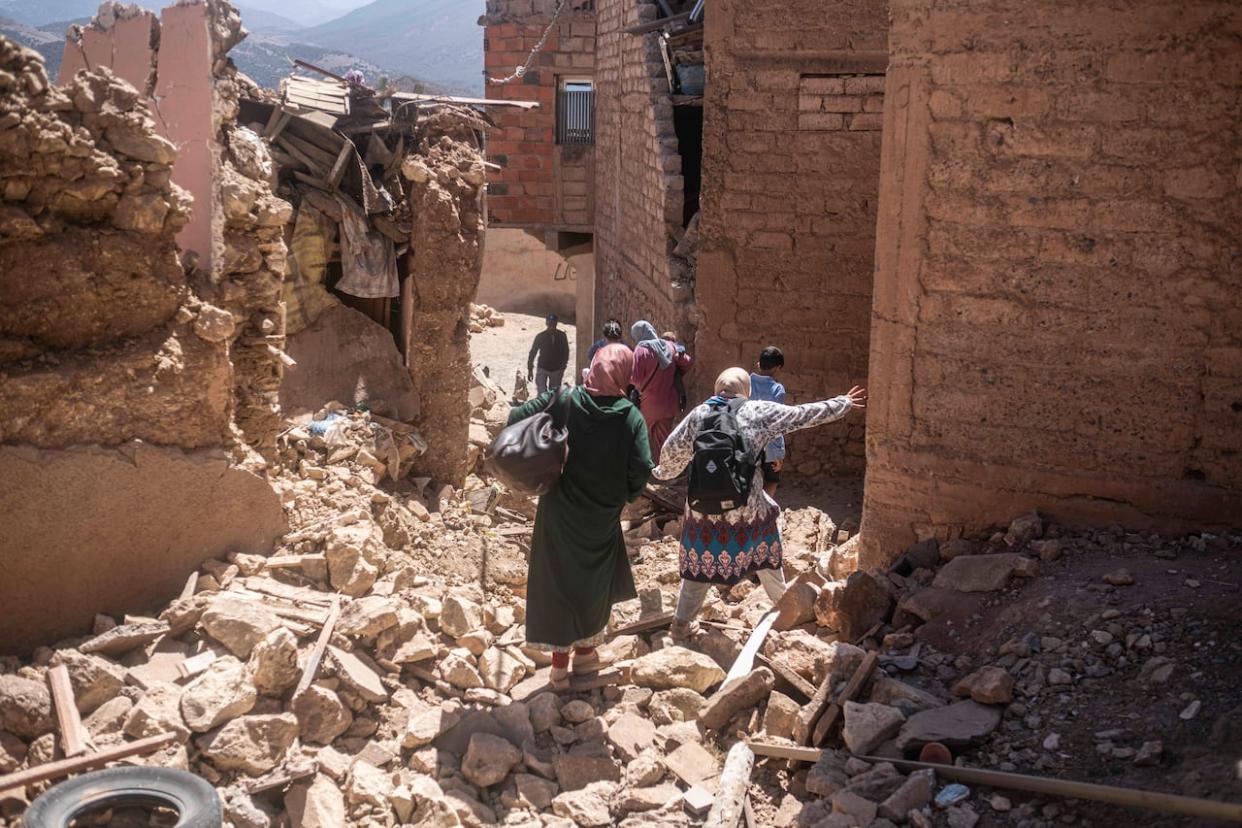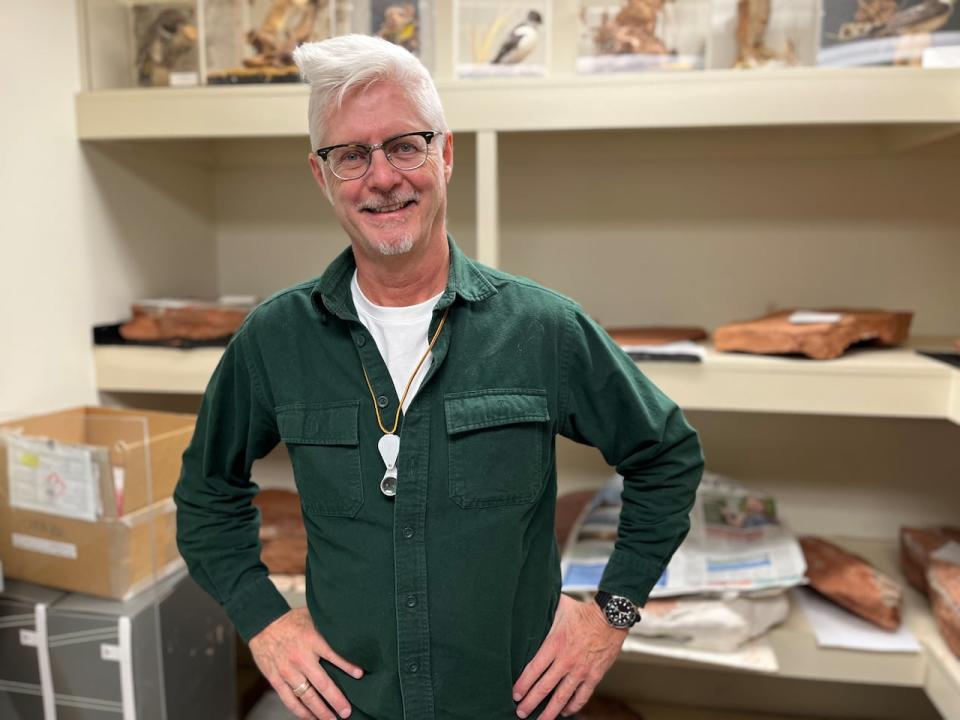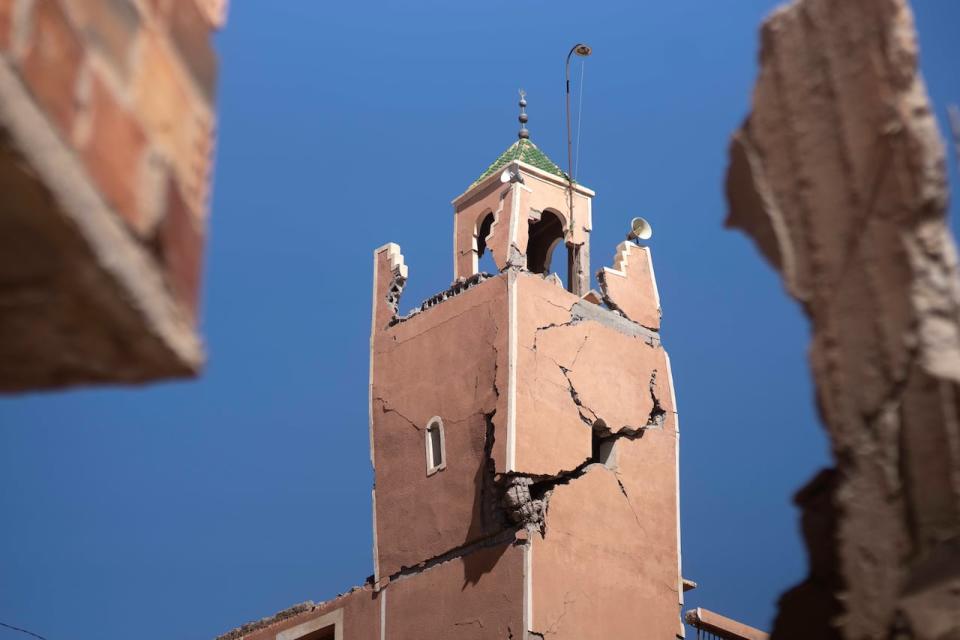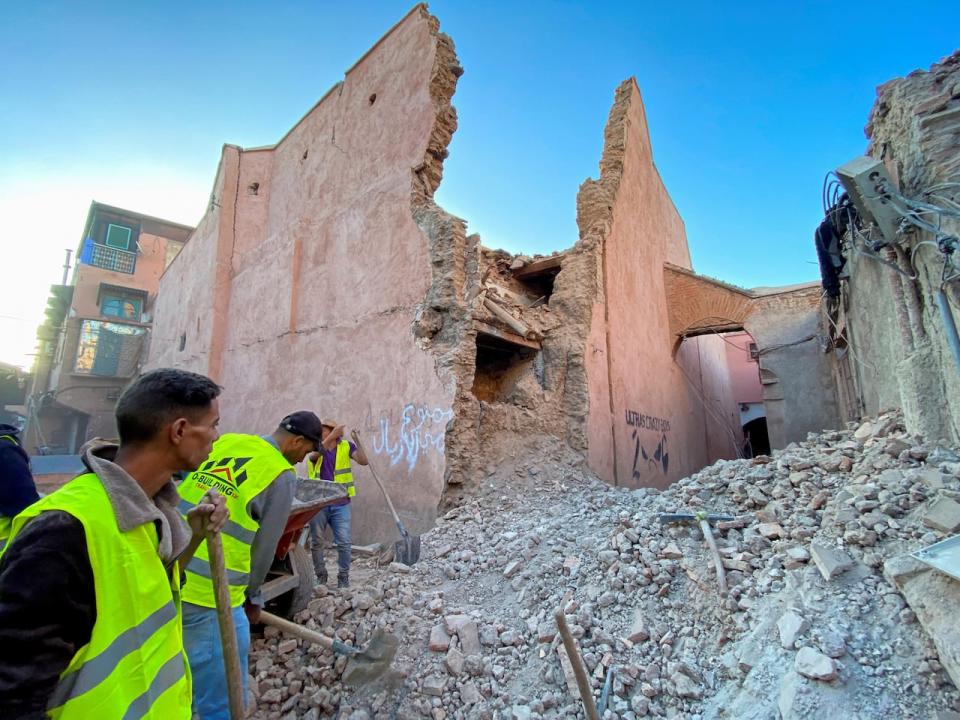Nova Scotian in Morocco describes terrifying earthquake experience

Nova Scotia geologist John Calder was enjoying a dinner with other Global Geopark Network executives on a balcony at the regional governor's home in Marrakech, Morocco on Friday night when he and others started to feel a rumbling.
It was a 6.9-magnitude earthquake that would bring death and devastation to a wide swath of the region. The centre of the quake was in the high Atlas Mountains, about 70 kilometres from Marrakech.
"It immediately got stronger," Calder said in a telephone interview Sunday from Marrakech. "I felt like I was a popcorn kernel on a stovetop pot and it became very severe.
"Someone called out 'earthquake' and we tried to immediately get out from underneath an overhanging roof ... because we were immediately concerned of anything overhead."

Geoscientist John Calder is on the executive of the Global Geopark Network and an adviser and member of the board of Cliffs of Fundy Global Geopark. (Jessica Doria-Brown/CBC)
He said the quake probably lasted about 20 seconds but it felt much longer.
Calder arrived in the city on Sept. 3 for the 10th UNESCO Conference of Global Geoparks, which drew 1,200 delegates from 50 countries.
Other Nova Scotians present
Among the delegates present were Sacha Brake, Caleb Grant and Colchester County Mayor Christine Blair, representing the Cliffs of Fundy Global Geopark. Calder is also a board member and adviser of that organization.
After the shaking stopped, Calder said he and other dinner guests went out in the street for safety.
He said terror was followed by disbelief. Then they began to take stock.
He said he and the other guests decided to stay outside for about two hours to ensure it was safe and to avoid getting in the way of rescue efforts before heading back to their hotel, located about three kilometres away.
"Our thoughts immediately went to how that area fared and we thought there must be deaths, there must be injuries," he said.
Stream of ambulances, police cars
Calder said they saw a steady stream of ambulances and police cars heading into the old town as they made their way back to the hotel.
He said although their hotel was new and suffered minimal damage, everyone was bundled up and sleeping outside when they got there.

A cracked mosque minaret stands after an earthquake in Moulay Ibrahim village. (Mosa'ab Elshamy/The Associated Press)
Older buildings in the city were not so lucky, Calder said.
"The old historic structures which led to the designation of the Old City of Marrakesh as a UNESCO World Heritage Site were damaged," he said.
"The walls of the old city that go back 1,000 years were damaged."
Blood collection site
Rather than straining relief efforts by getting all of the 1,200 participants out of Marrakech, conference organizers worked with Moroccan authorities to set up a blood collection site near the conference centre, which was badly damaged.
Calder said it could have been much worse as he and other conference participants were scheduled to visit the Atlas Mountains on Sunday.
He said they were supposed to stay in villages that were hit hard by the earthquake.
"It's a roll of the dice, and a natural disaster like this … just brings human.existence into focus," he said. "We think we're so powerful but the Earth shrugs and doesn't much care about us."
Nova Scotians safe
Calder said all of the Nova Scotia delegates are safe and have been in touch with their families and Canadian officials.

People work next to damage in the historic city of Marrakech following the earthquake. (Abdelhak Balhaki/Reuters)
He said some people at the conference were traumatized by the events, but he said their experience is nothing compared to the loss of life, injuries and loss of homes the people of Morocco have suffered.
He said some people are leaving the conference a day early but many will stay until it ends. Calder said he will be driving to Casablanca on Tuesday and flying to Montreal from there.
"I cannot say enough about the Moroccan people and how resilient and how gracious [they have been] through such a tragedy," he said. "It's just, I think, the single thing I'll remember the most."
MORE TOP STORIES


